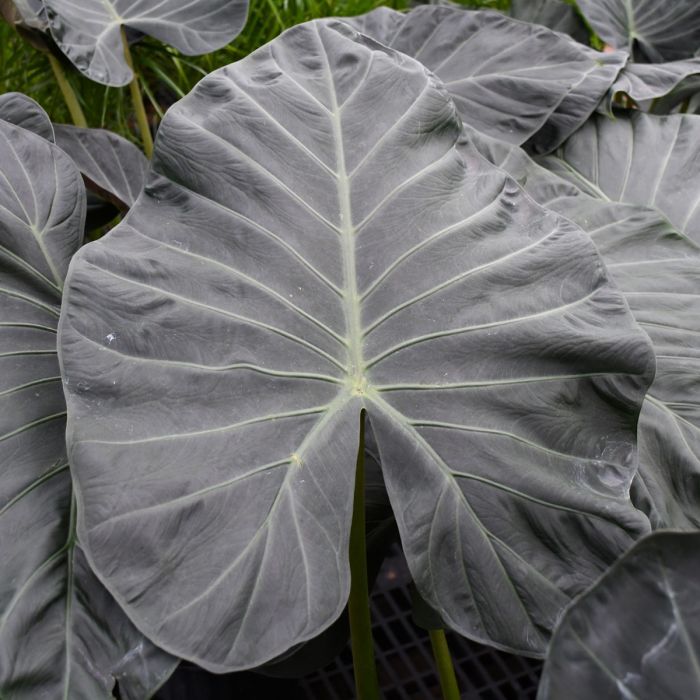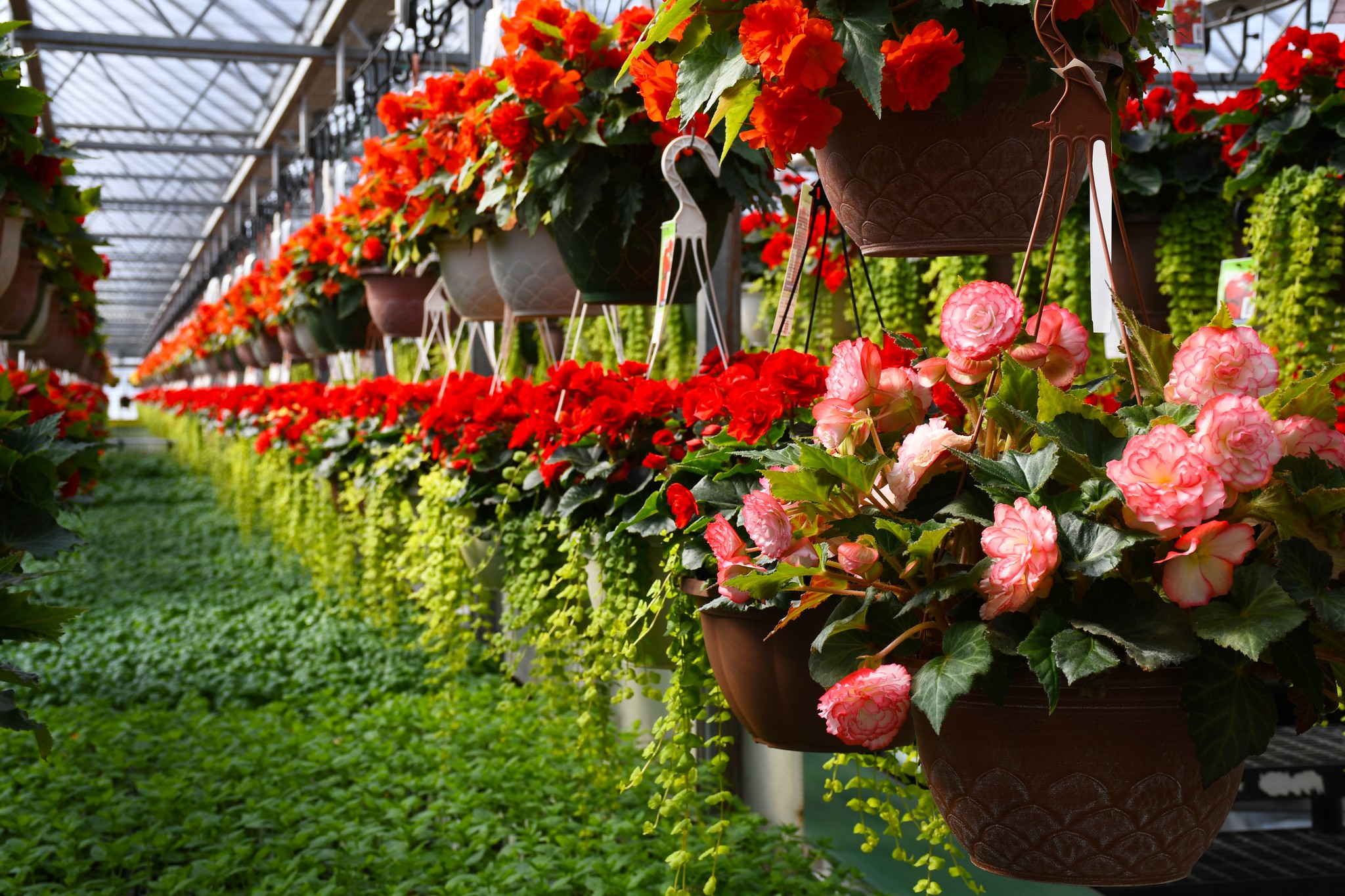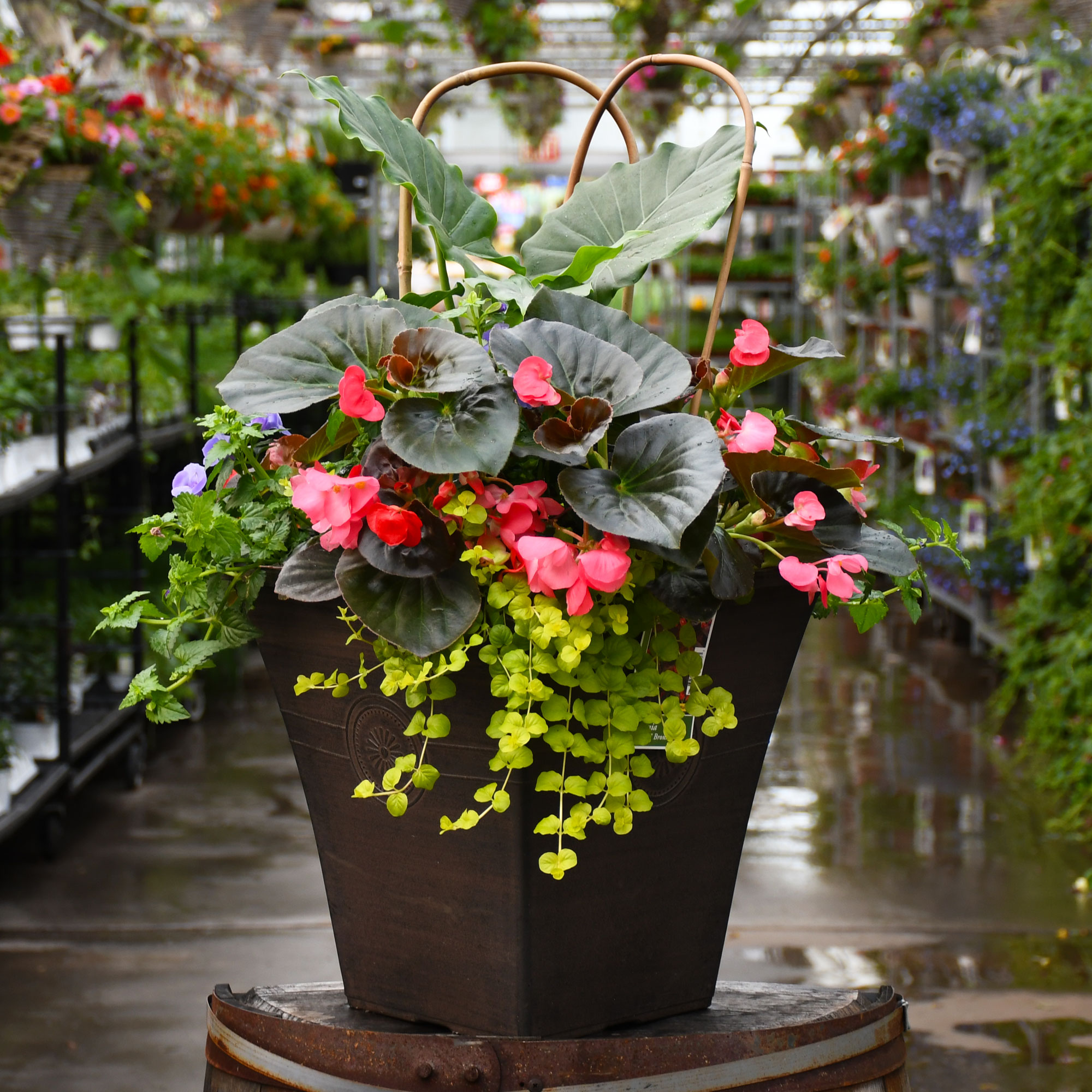Alocasia 'Regal Shield'

- Sun Preference
- Part-Sun
Description
Regal Shields Elephant's Ear | Alocasia 'Regal Shields'
Alocasia odora x Alocasia reginula
Other Names: Alocasia, Taro
Impressive deep green leaves, with a dark purple overlay and lighter green veins, emerge in a compact, upright and arching habit; elegant as a large accent or screen; perfect for patio containers.
Direct from the Grower
When you see the Gerten Grown logo on our annuals, you know you're getting a fresh plant directly from our greenhouse. We've been perfecting our growing process for over four generations and pride ourselves on providing local quality and freshness to our customers. Better pricing on better quality plant material, that's Gerten Grown.
Details
Regal Shields Elephant's Ear's attractive enormous crinkled heart-shaped leaves remain dark green in color with distinctive light green veins and tinges of deep purple throughout the year on a plant with an upright spreading habit of growth. It features solitary conical powder blue hooded flowers with white centers rising above the foliage in mid summer.
Regal Shields Elephant's Ear is an open herbaceous annual with an upright spreading habit of growth. Its medium texture blends into the garden, but can always be balanced by a couple of finer or coarser plants for an effective composition.
This is a relatively low maintenance plant, and usually looks its best without pruning, although it will tolerate pruning. It has no significant negative characteristics.
Regal Shields Elephant's Ear is recommended for the following landscape applications;
- Mass Planting
- Hedges/Screening
- General Garden Use
- Container Planting
Regal Shields Elephant's Ear will grow to be about 6 feet tall at maturity, with a spread of 4 feet. It has a low canopy with a typical clearance of 2 feet from the ground. Although it's not a true annual, this plant can be expected to behave as an annual in our climate if left outdoors over the winter, usually needing replacement the following year. As such, gardeners should take into consideration that it will perform differently than it would in its native habitat.
This plant should be grown in a location with partial shade or which is shaded from the hot afternoon sun. It is quite adaptable, prefering to grow in average to wet conditions, and will even tolerate some standing water. It is not particular as to soil pH, but grows best in rich soils. It is somewhat tolerant of urban pollution. This particular variety is an interspecific hybrid, and parts of it are known to be toxic to humans and animals, so care should be exercised in planting it around children and pets.
Regal Shields Elephant's Ear is a fine choice for the garden, but it is also a good selection for planting in outdoor pots and containers. With its upright habit of growth, it is best suited for use as a 'thriller' in the 'spiller-thriller-filler' container combination; plant it near the center of the pot, surrounded by smaller plants and those that spill over the edges. It is even sizeable enough that it can be grown alone in a suitable container. Note that when growing plants in outdoor containers and baskets, they may require more frequent waterings than they would in the yard or garden.
More Information
| Common Family Name | Elephant Ear |
|---|---|
| Sun Preference | Part-Sun |
| Plant Life Cycle | Annual |
| Mature Height (Range) | 61" - 72" |
| Mature Spread (Range) | Over 36" |


